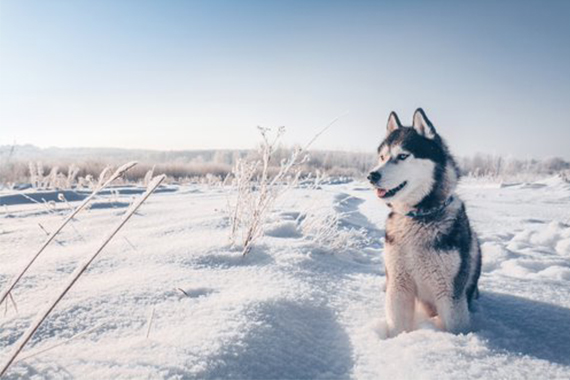Siberian Husky
The Siberian Husky is a very intelligent and sometimes stubborn dog. They are best known as sled dogs. This breed will not be extremely watchful, they prefer to greet newcomers. The husky has a distinctive wolf-like howl and enjoys being busy in the yard, as well as chasing small animals. It is therefore sensible to keep your husky on a leash.

Characteristics
Colour
The coat colour of the Siberian Husky is different. The dog can be completely white or black, but also a combination of colours. Even a red colour occours, even though that is not as common.
Appearance characteristics
Body
Huskies have a straight back, upright neck and a muscular body. The triangular ears stand up and are open. The blue eyes are striking, but they can also be brown or even one of both.
Average weight
Between 20 and 35 kg.
Height at withers
Between 50 and 60 cm.
Approach to training
This breed of dog is physically strong and determined in what it does. It is important to train a lot and to spend time with your husky. Start obedience training on time and don’t give up. A husky can be very stubborn at times, but with patience and a consistent approach, it is a friend for life.
Common Symptoms
Health problems that are common in huskies are hip dysplasia (misshaped hip) and eye problems. Please note that a Siberian husky does not tolerate the heat well, so try to work with the dog in the early hours on those summer days.
Dog sports
Real dog sports for the husky are sledding and pulling skiers. This breed likes to be active and likes to go running together. Make sure the husky can really use his energy, otherwise he will do this in his own way.
Siberian Huskies are suitable for owners who:
- Want to be active with the dog
- Possibly have another dog in the house
- Are consistent in raising dogs
- Do not want a dog specifically for guarding (e.g. a yard)



